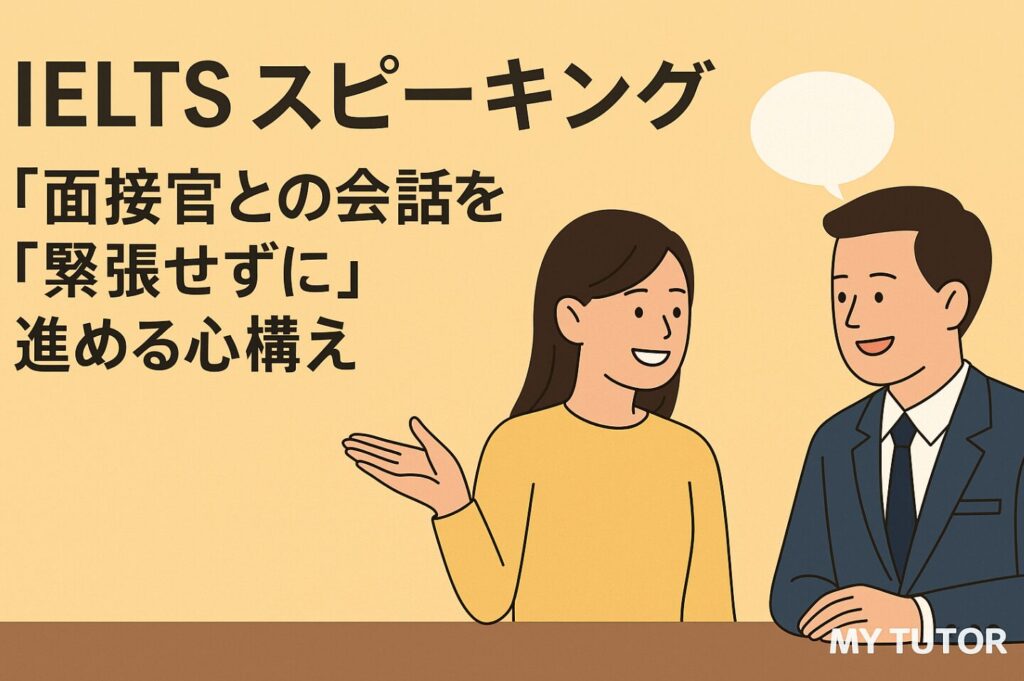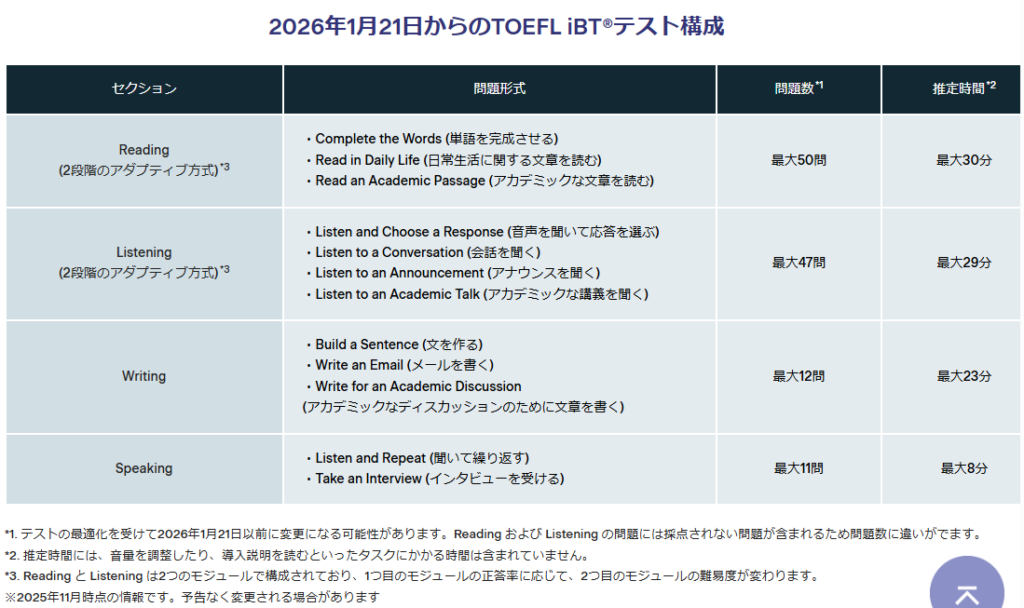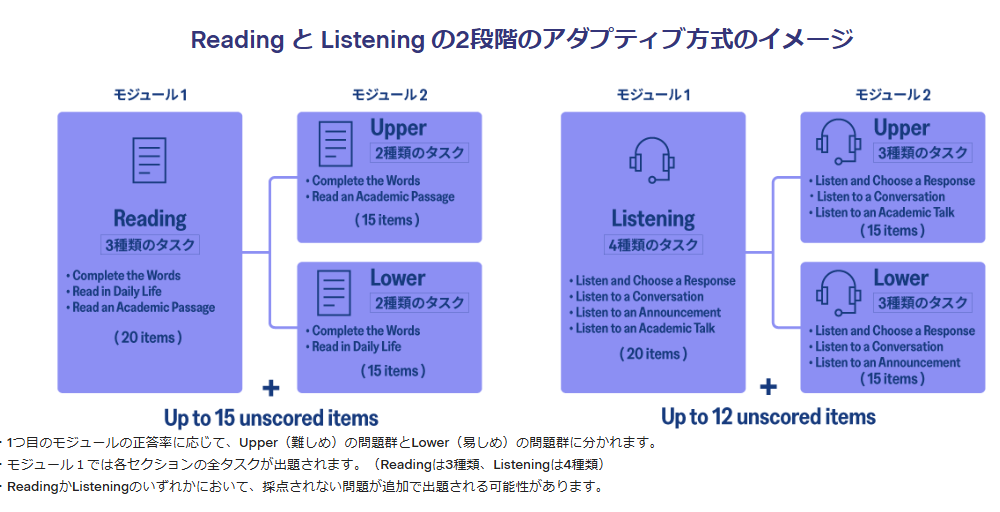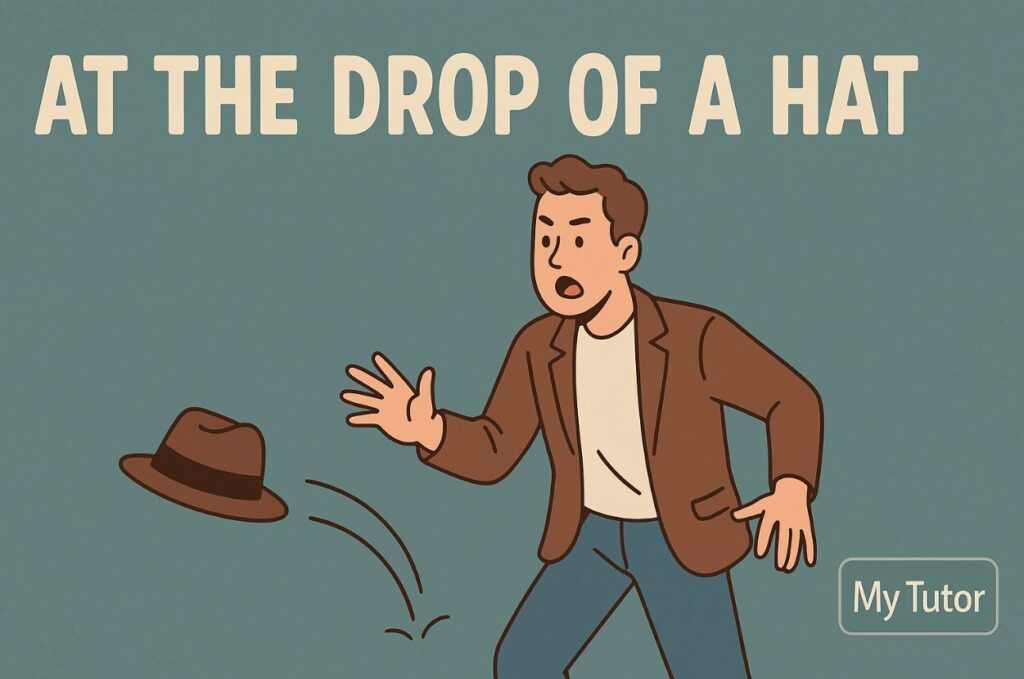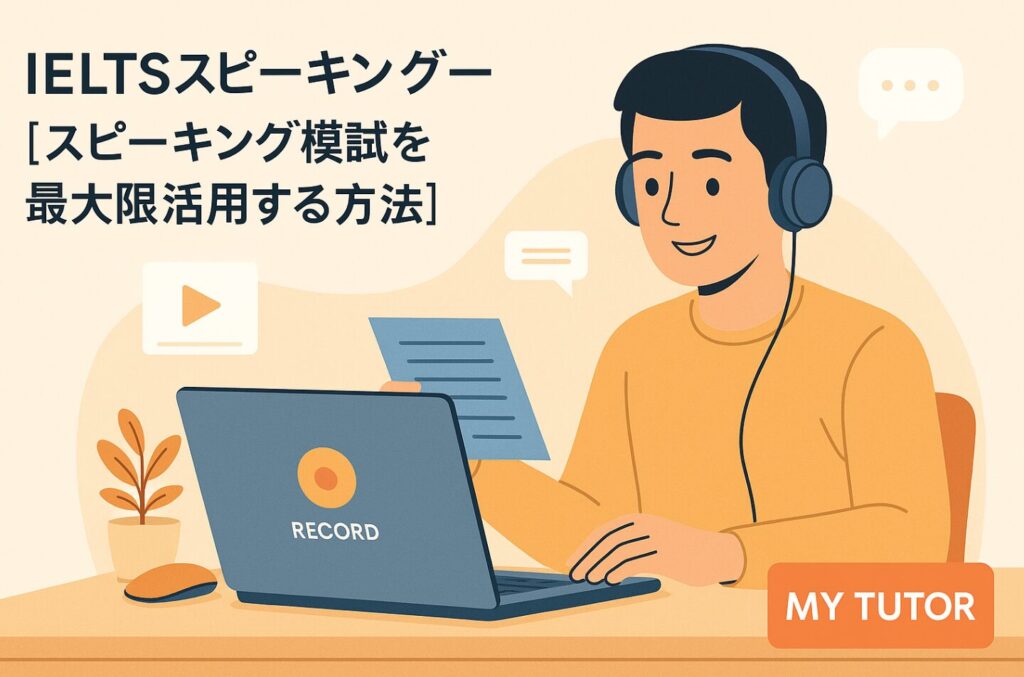● In the interview, the most important skills evaluated are fluency, pronunciation, and the ability to express your opinion logically.
In particular, it is recommended that students avoid Japanese-style short answers and instead use the English-style format of stating your opinion clearly and supporting it with reasons.
● For interview responses, a 1.5-minute speech of approximately 200 words is considered appropriate.
🔎 Commonly expected interview themes include:
- Self-introduction / Personal PR / Background
- Family, returnee experience, and life abroad
- School life, future goals, and reasons for applying
- Reading, favorite books/movies, and cultural topics
- Social and current issues (environment, technology, education, gender, etc.)
- Ethics and personal values (e.g., “What is important to you?”, “What does success mean to you?”)
- Teamwork, leadership, and cooperation
===============================================
Practice Task:
Recommended speaking time: 1–2 minutes (150–250 words).
Question 1
Tell me about yourself. What kind of person are you?
(約170語・1分30秒)
I would describe myself as a curious and open-minded person who enjoys exploring new ideas and cultures. Because I have lived both in Japan and overseas, I’ve learned to adapt quickly to different situations and communicate with various kinds of people. I consider myself hardworking, especially when I set a goal that I truly care about. For example, when I struggled with English at first, I practiced every day until I became confident.
I also value kindness and empathy. I always try to support my friends when they are having a difficult time, because I believe that small acts of kindness can change someone’s day. In addition, I enjoy working with others, and many teachers have told me that I’m patient and a good listener. Overall, I try to be someone who continues learning, helps others, and faces challenges with a positive attitude.
Question 2
Why did you choose Senzoku Gakuen?
(約160語・1分20秒)
I chose Senzoku Gakuen because I feel it is the best environment for students who want to learn and grow in an international setting. One thing that attracted me was the strong English program. I like that English is not only a subject here, but also a tool for communication in many school activities. I believe this will help me continue to develop my global perspective.
I was also impressed by the school’s emphasis on creativity, self-expression, and independent thinking. I want to challenge myself academically, and I feel that Senzoku provides many opportunities for students to explore their interests deeply. In addition, I appreciate the supportive atmosphere of the school. Students are encouraged to take on new challenges, participate actively, and learn from each other. I believe that in this environment, I can grow not only academically but also as a person.
Question 3
How has living or studying abroad shaped you?
(約150語・1分15秒)
Living abroad had a huge impact on my personality and values. When I first arrived, everything—from the language to the culture—felt unfamiliar, and I often felt nervous or uncertain. However, adapting to a new environment taught me how to be flexible and resilient. I learned that asking questions, trying new things, and making mistakes are important parts of growth.
Communicating with people from different backgrounds also helped me become more open-minded. I realized that people can think differently because of their culture or experiences, and that those differences make conversations more interesting. This experience also taught me to respect diversity and listen carefully to others. Overall, studying abroad helped me gain confidence, independence, and a global perspective that continues to influence how I see the world.
Question 4
What is your favorite book or movie, and what did you learn from it?
One of my favorite books is Wonder, because it teaches an important lesson about empathy and kindness. The story follows a boy named Auggie, who has a facial difference and faces challenges when he starts attending school. At first, many students avoid him or judge him based on his appearance. However, as the story unfolds, we see how powerful kindness can be in changing people’s hearts.
From this book, I learned that even small acts—such as sitting with someone at lunch or speaking to someone who seems lonely—can make a huge difference. I also realized how important it is not to judge others too quickly. Everyone has something difficult they are dealing with, even if we can’t see it. After reading Wonder, I started to think more carefully about how my words and actions affect those around me. The book deeply inspired me to be someone who chooses kindness whenever possible.
Question 5
Describe a challenge you faced and how you overcame it.
(約170語・1分30秒)
One of the biggest challenges I faced was adjusting to school when I first moved abroad. I understood basic English, but I couldn’t express my ideas well, and I often felt embarrassed to speak in front of classmates. Because of this, I became quiet and sometimes felt left out.
To overcome this, I made a plan for myself. First, I practiced English every day, watching videos, reading books, and keeping a journal. Next, I forced myself to participate in class, even if I made mistakes. I also joined a school club, which helped me make friends and use English naturally. At first it was difficult, but gradually I became more confident.
This experience taught me that challenges are opportunities to grow. I realized that effort, patience, and a positive attitude can completely change a situation. It made me stronger and more resilient.
Question 6
What is the biggest problem your generation faces?
(約170語・1分30秒)
I believe the biggest problem my generation faces is the pressure created by social media.
While technology allows us to connect easily, it also makes it difficult for young people to feel confident about themselves.
Many teenagers compare their lives with the “perfect” images they see online, and this can lead to anxiety, low self-esteem, and even depression.
Another issue is the constant flow of information.
With so much content available, it is easy to feel overwhelmed or distracted.
Some people struggle to focus or develop deep thinking skills because they are always switching from one thing to another.
To address these problems, I think we need stronger education about digital literacy.
Young people should learn how to protect their mental health, how to evaluate information critically, and how to use technology in a balanced way.
If we can develop healthier online habits, I believe our generation will be able to use technology wisely without being controlled by it.
Question 7
What do you think about AI? Is it beneficial or dangerous?
(約175語・1分35秒)
I think AI is both beneficial and potentially dangerous, depending on how it is used.
On the positive side, AI can help solve problems that humans cannot handle alone.
For example, in medicine, AI can analyze data quickly and help doctors diagnose diseases earlier.
In education, AI can personalize learning and help students study more effectively.
However, there are also risks.
AI can replace certain jobs, which may create economic problems.
There is also the issue of privacy—AI systems often collect large amounts of personal information.
If this information is misused, people may lose control over their own data.
For AI to be truly beneficial, we need strict rules and ethical guidelines.
Technology should support human life, not harm it.
I am not afraid of AI itself, but I believe humans must take responsibility to ensure that AI is developed safely and fairly.
Question 8
If you could change one thing in the world, what would it be?
(約180語・1分40秒)
If I could change one thing in the world, I would reduce the gap in educational opportunities.
In many countries, a child’s future depends heavily on where they are born and what resources their family has.
Some students have access to excellent schools, technology, and supportive environments, while others do not even have basic supplies.
Education shapes a person’s future, and I believe every child deserves the chance to learn and grow.
If educational inequality continues, society will face more poverty, conflict, and discrimination.
To change this, I would like to see more global cooperation—sharing teaching resources, training teachers, and providing scholarships.
Technology such as online education could also help reach students in remote areas.
By narrowing the educational gap, we can create a future where talent is not wasted and every child has the opportunity to contribute to society.
I believe that improving education would lead to a more peaceful and fair world.
Question 9
What do you like to do in your free time?
(約155語・1分25秒)
In my free time, I enjoy reading, playing sports, and spending time with my family.
Reading helps me relax and also allows me to explore new ideas, cultures, and perspectives.
I especially enjoy novels that teach life lessons or introduce strong characters that inspire me.
I also like playing sports because they help me stay active and clear my mind.
Sports teach me teamwork, discipline, and how to stay positive even when things are difficult.
It’s a great way to refresh myself after studying.
Another thing I enjoy is talking with my family about our daily experiences.
These conversations help me stay connected and remind me of what is important in life.
Overall, my free time activities help me stay balanced—mentally, physically, and emotionally.
Question 10
What does “success” mean to you?
(約180語・1分40秒)
To me, success is not about being perfect or achieving the highest scores.
Success means becoming a person I can be proud of—someone who continues to grow, faces challenges honestly, and contributes positively to others.
When I lived abroad, I struggled with language barriers and cultural differences.
At first, I thought success meant doing everything without mistakes.
But over time, I learned that mistakes are part of the journey.
Every time I overcame a difficult moment, I felt a deeper sense of achievement than I ever felt from getting a good grade.
So for me, success is about progress rather than perfection.
It means putting in effort, learning from failures, and becoming stronger step by step.
If I can continue growing, stay kind to others, and use my abilities to make a difference, I believe that is true success.
That is the philosophy I want to follow throughout my life.
Question 11
Who has influenced you the most?
(約175語・1分35秒)
The person who has influenced me the most is my mother.
She has always encouraged me to take on challenges, especially when we lived abroad.
There were times when I felt nervous about speaking English or joining school activities, but she never let me give up.
Instead, she reminded me that making mistakes is a natural part of learning and that effort is more important than perfection.
What I admire most is her positive attitude.
Even during difficult situations, she stays calm and looks for solutions rather than complaining.
Watching her taught me how powerful a positive mindset can be.
She also values kindness and empathy.
She always tells me that even small acts of kindness—like listening to others or offering help—can make a big difference.
Because of her influence, I try to treat people with respect and be someone who supports others.
Her guidance shaped both my character and my goals, and I hope to grow into someone as strong and compassionate as she is.
Question 12
Do you prefer working alone or in a team?
(約165語・1分30秒)
I enjoy both, but if I had to choose, I prefer working in a team.
Teamwork allows people with different strengths and perspectives to come together and create better results.
When we share ideas, we often discover solutions that we would not think of alone.
Working in a team also teaches important skills such as communication, leadership, and responsibility.
For example, when I worked on group projects abroad, we had to divide roles, respect deadlines, and support each other.
Through these experiences, I learned how to listen actively and how to express my opinions clearly without being too direct.
However, teamwork is not always easy.
People sometimes disagree or have different working styles.
But I think these challenges help us grow.
Overcoming differences teaches patience and flexibility—skills that are valuable not only in school but also in real life.
For these reasons, I feel that working in a team is rewarding and helps me develop as a person.
Question 13
What ability do you bring to a group?
(約170語・1分30秒)
The ability I bring to a group is strong communication skills combined with patience.
Because I lived abroad, I learned to work with classmates who had different backgrounds, opinions, and ways of thinking.
This experience taught me to listen carefully before responding and to make sure everyone feels included.
I also try to create a positive atmosphere.
When a group faces difficulties, some members may feel stressed or discouraged.
In those moments, I try to stay calm and help the team stay focused on our goals.
Another ability I have is organization.
In group projects, I am good at managing tasks, keeping track of deadlines, and helping the team work efficiently.
I believe these strengths make teamwork smoother and more enjoyable.
My goal in any group is not only to achieve good results but also to make sure everyone feels respected and motivated.
Question 14
If you could study abroad again, where would you go?
(約165語・1分30秒)
If I could study abroad again, I would choose Canada.
Canada is a multicultural country where people from many backgrounds live together, which creates an open and welcoming environment.
I think studying there would allow me to meet people with diverse perspectives and improve my communication skills even further.
I am also interested in Canada’s education system.
Schools there encourage students to express their opinions, participate in discussions, and think independently.
I believe this style of learning helps students develop confidence and creativity.
Another reason is the natural environment.
Canada has beautiful scenery, and I would love to experience outdoor activities such as hiking or canoeing.
Being surrounded by nature helps me relax and stay balanced.
Overall, Canada seems like a place where I could grow academically, culturally, and personally.
Question 15
What is your favorite school subject and why?
(約170語・1分30秒)
My favorite school subject is English because it opens the door to communication with people from all over the world.
When I lived abroad, English became a tool that allowed me to make friends, understand different cultures, and express my thoughts confidently.
I enjoy how flexible the language is.
Through reading, I can explore different emotions and viewpoints, and through writing, I can shape my ideas clearly.
English also gives me access to international news, books, and videos, which helps me stay informed about global issues.
Another reason I like English is that it reflects who I want to become in the future—someone who can connect people across cultures.
Being able to use English naturally is a skill that will be useful no matter what career I choose.
For these reasons, English is the subject that motivates me the most and makes me excited to learn.
Question 16
How do you deal with stress or failure?
(約170語・1分30秒)
When I feel stressed or experience failure, the first thing I do is take a short break to calm my mind.
I have learned that forcing myself to continue when I am overwhelmed usually makes the situation worse.
After I regain my focus, I try to look at the problem objectively.
One method that helps me is writing down what went wrong and what I can improve next time.
This turns failure into a learning experience rather than something to fear.
I also talk to someone I trust—usually a family member or a close friend.
Expressing my feelings helps me organize my thoughts and feel supported.
Finally, I remind myself that stress and failure are natural parts of growth.
When I lived abroad, I faced many challenges, but overcoming them made me more confident and resilient.
So now, instead of avoiding difficult situations, I try to see them as opportunities to become stronger.
Question 17
Should students learn a second language?
(約160語・1分25秒)
Yes, I strongly believe that students should learn a second language.
Language is not only a tool for communication but also a window into different cultures and ways of thinking.
When we learn another language, we become more open-minded and better at understanding people with different backgrounds.
In today’s globalized world, the ability to speak more than one language is a major advantage.
It helps with future careers, international cooperation, and cultural exchange.
Additionally, learning a second language strengthens the brain.
It improves memory, creativity, and problem-solving skills.
From my own experience studying abroad, language learning helped me build confidence and make friends from many countries.
For these reasons, I feel that learning a second language is not just beneficial—it is essential for the younger generation.
Question 18
What qualities make a good leader?
(約175語・1分35秒)
A good leader needs three key qualities: empathy, responsibility, and clear communication.
First, empathy is crucial.
A leader must understand the feelings and perspectives of the people they guide.
Without empathy, a leader cannot earn trust or build strong relationships.
Second, responsibility is important.
A good leader does not blame others when things go wrong.
Instead, they take initiative, admit mistakes, and look for solutions.
Third, a leader needs strong communication skills.
This means expressing ideas clearly and listening carefully to others.
I believe leadership is not about giving orders—it is about inspiring people and helping the team work together.
During group projects in my overseas school, I learned that the best leaders are those who support and encourage others.
They bring out each member’s strengths rather than trying to stand out themselves.
That is the kind of leader I hope to become.
Question 19
Should students specialize early, or study broadly?
(約165語・1分30秒)
I believe students should study broadly before choosing a specific field.
When students are young, they may not fully understand their strengths, interests, or long-term goals.
A broad education allows them to explore many subjects and discover what truly excites them.
Studying different fields also helps develop critical thinking and creativity.
For example, learning science teaches logical reasoning, while studying literature improves empathy and imagination.
Having a variety of perspectives is useful no matter what career a person chooses later.
Specialization is important, but it should come after students gain enough experience to make informed decisions.
If they specialize too early, they may limit their opportunities or miss discovering another passion.
Therefore, I think a balanced approach is best: learn broadly first, then specialize when you truly understand yourself.
Question 20
What role does technology play in education?
(約170語・1分30秒)
Technology plays a powerful and increasingly important role in education.
It makes learning more accessible and personalized.
For example, online platforms allow students to review lessons at their own pace, while digital tools help teachers track individual progress.
Technology also connects students to the world.
They can access international news, communicate with people abroad, and explore subjects that may not be available in their own schools.
However, technology also requires balance.
Too much screen time can reduce concentration and affect mental health.
Students need to learn how to use digital tools responsibly and how to think critically about the information they find online.
Overall, I believe technology can enhance education when used wisely.
It should support learning, not replace human interaction.
When combined with good teaching and strong communication, technology can greatly improve the quality of education.
Question 21
Is it important to learn about other cultures?
(約170語・1分30秒)
Yes, I believe it is very important to learn about other cultures.
In today’s globalized world, we interact with people from many backgrounds, both online and in real life.
Understanding different cultures helps us avoid misunderstandings and communicate more respectfully.
When I lived abroad, I learned that people’s behavior and values often come from their cultural traditions.
For example, what is considered polite in one culture may seem unusual in another.
Learning about these differences helped me become more open-minded and patient.
Cultural knowledge also reduces prejudice.
When we learn why people think or act differently, we stop judging them quickly and start appreciating diversity.
Finally, understanding other cultures makes the world more interesting.
It opens our minds to new ideas, foods, languages, and ways of living.
For these reasons, I believe cultural understanding is essential, especially for the younger generation who will live in an increasingly connected world.
Question 22
Describe a meaningful object or place from your childhood.
(約175語・1分35秒)
A meaningful object from my childhood is a small notebook I kept when I first lived abroad.
At that time, I often felt nervous and overwhelmed because everything—the language, the school, the people—was new to me.
To cope with these feelings, I started writing in the notebook every day.
I wrote about things that surprised me, things I learned, and moments when I felt proud of myself.
Sometimes I also drew pictures of places that made me happy, like the park near my house or the view from my classroom window.
Looking back at the notebook now, I realize how much I grew during that period.
It reminds me of my courage and how I gradually adapted to a new environment.
This notebook is meaningful because it shows the beginning of my independence and my willingness to challenge myself.
Whenever I feel unsure about something today, I look at it and remember that I have overcome difficult situations before.
Question 23
What would you do if you saw a classmate being bullied?
(約175語・1分35秒)
If I saw a classmate being bullied, I would not ignore the situation.
First, I would make sure the student is safe.
If possible, I would go to the classmate and let them know they are not alone.
Sometimes just standing beside someone can make the bully stop.
Next, I would report the situation to a teacher or another trusted adult.
Bullying is not something students should handle by themselves because it can become dangerous.
Teachers need to know what is happening so they can protect the student and address the problem properly.
Afterwards, I would continue to support the classmate by talking to them and making sure they feel included.
Isolation often makes bullying worse, so showing kindness is important.
Bullying should never be tolerated.
Everyone deserves to feel safe at school, and I believe that standing up for others is a responsibility, not just a choice.
Question 24
How do you define “happiness”?
(約180語・1分40秒)
To me, happiness is a feeling of balance and appreciation in everyday life.
It does not necessarily come from big achievements or special events.
Instead, it comes from small moments—laughing with family, learning something new, or feeling proud of a personal effort.
Happiness also means being comfortable with who I am.
When I lived abroad, I often compared myself to others, which made me feel insecure.
But over time, I learned that happiness grows when we focus on our own progress rather than trying to be perfect.
Another important part of happiness is connection.
Having people who support me and whom I can trust makes me feel grounded.
Even during difficult times, those relationships give me strength.
Overall, I define happiness as a combination of gratitude, growth, and meaningful relationships.
It’s not something we “find” once—it’s something we create through our daily choices and mindset.
Question 25
What career would you like to pursue in the future?
(約170語・1分30秒)
In the future, I would like to pursue a career that allows me to work internationally and connect people across cultures.
Right now, I am interested in fields such as international business, education, or global communication.
Living abroad taught me how exciting and meaningful it is to understand different perspectives.
I realized that many misunderstandings in the world come from a lack of communication or cultural awareness.
If I could work in a job that helps bridge these gaps, I feel I could make a positive impact.
I also enjoy learning languages, expressing ideas clearly, and collaborating with others—all skills that are useful in international careers.
Although I’m not sure exactly what profession I will choose, I want to use my experiences and strengths to contribute to a more connected and understanding world.
My goal is to grow into someone who can support cooperation between people from different backgrounds.
Question 26
Is social media helpful or harmful for young people?
(約175語・1分35秒)
I believe social media is both helpful and harmful for young people, depending on how it is used.
On the positive side, social media allows teenagers to communicate easily, share ideas, and learn about global issues.
It can also provide inspiration—such as educational content or meaningful messages from people around the world.
However, there are also serious risks.
Many young people compare themselves with unrealistic images online, which can lead to stress and low self-esteem.
Social media can also create pressure to be constantly connected, making it harder to concentrate on studying or relaxing offline.
To use social media safely, young people need digital literacy skills: understanding privacy settings, recognizing misinformation, and limiting screen time.
Social media itself is not the problem—the problem is how we manage it.
With balance and awareness, it can be a useful tool rather than a harmful one.
Question 27
Should students wear uniforms?
(約165語・1分30秒)
I believe school uniforms have both advantages and disadvantages, but overall, I think they are helpful.
Uniforms reduce social pressure because students don’t need to worry about fashion or comparing clothing.
This can make school a more equal environment, especially for students from different economic backgrounds.
Uniforms also help create a sense of belonging.
When everyone wears the same outfit, students feel part of the same team, which can strengthen school spirit.
On the other hand, uniforms limit self-expression.
Clothing is one way young people express their identity, and wearing the same outfit every day can feel restrictive.
To balance these issues, schools could allow small freedoms, such as choosing hairstyles, accessories, or casual days.
In general, I think uniforms are beneficial, but they should not completely take away individuality.
Question 28
If you could start a club at Senzoku, what would it be?
(約170語・1分30秒)
If I could start a club at Senzoku, I would create an “International Communication Club.”
The purpose of this club would be to connect students who are interested in global issues, languages, and cultural exchange.
Members could discuss world news, learn about customs from different countries, and invite returnee students to share their experiences.
We could also hold events such as international food days, debate sessions, and English-only meetings.
This club would be beneficial because Senzoku has many students with diverse backgrounds, and it would give everyone a chance to understand each other better.
It could also help students improve their communication skills and prepare for a global society.
By creating a friendly space for cultural exchange, I believe the club would build strong connections within the school community.
Question 29
Are environmental issues important? What can you do to help?
(約180語・1分40秒)
Environmental issues are extremely important because they affect every aspect of our future—our health, our food supply, and even our safety.
Climate change, pollution, and the loss of biodiversity are becoming more serious each year.
If we ignore these problems now, the next generation will face even greater challenges.
Although one person cannot solve everything, small actions can make a big difference when many people participate.
For example, I try to reduce plastic use by carrying my own bag and bottle.
I also separate recycling carefully and conserve electricity at home.
Education is another important step.
By learning about environmental issues and sharing what we know with friends, we can encourage more people to take action.
Ultimately, protecting the environment is a responsibility we all share.
If each of us makes small changes, together we can create a healthier and more sustainable world.
Question 30
Describe a book, movie, or event that changed your way of thinking.
(約190語・ほぼ2分)
A movie that changed my way of thinking is Inside Out.
Before watching it, I believed that happiness meant avoiding negative emotions like sadness or anger.
However, the movie taught me that every emotion has a purpose.
The story follows a girl named Riley who struggles with moving to a new city.
When Joy tries to push Sadness away, things only get worse.
Eventually, Joy realizes that Sadness helps Riley express her feelings and receive support from others.
This message changed how I think about emotions.
When I lived abroad, I sometimes felt lonely or frustrated, but I tried to hide those feelings because I thought they were “bad.”
After watching the movie, I understood that sharing emotions is important and that sadness can bring people closer together.
The movie taught me that emotional honesty is essential for growth.
Now, instead of pretending to be fine, I try to communicate openly.
This change has helped me build stronger relationships and understand myself better.
🌟 Reading, favorite books/movies, and cultural topics
Question 31
What is a book that had a strong impact on your life? Why?
(約165語・1分30秒)
One book that had a strong impact on my life is Wonder.
The story follows a boy named Auggie, who was born with a facial difference and struggles to fit in at school.
What impressed me was how the story is told from different perspectives—Auggie himself, his sister, and his classmates.
By seeing the same situation from many viewpoints, I realized how important empathy is.
It taught me that people often act the way they do because of their own struggles, not because they are naturally unkind.
After reading this book, I became more careful with my words and actions.
For example, when I meet someone new or different, I try to listen first and understand their background before judging them.
This book not only improved my English reading skills but also helped me grow emotionally.
Because of Wonder, I want to be the type of person who chooses kindness, even in small moments.
Question 32
What is your favorite movie, and what lesson did it teach you?
(約170語・1分35秒)
My favorite movie is Inside Out, an animated film that explores emotions.
The story shows how a young girl named Riley struggles with moving to a new city, and how her emotions—Joy, Sadness, Anger, Fear, and Disgust—try to help her adjust.
What I learned from this movie is that every emotion plays an important role.
Before watching it, I believed that sadness was something we should avoid.
But the movie shows that sadness helps us connect with others and ask for support when we need it.
This lesson was meaningful to me because when I moved abroad, I also felt confused and lonely.
At first, I tried to hide those feelings, but eventually I realized that talking about them helped me adjust.
This movie taught me that it’s okay to feel sad sometimes.
It doesn’t make us weak; it helps us grow.
That message is why this movie remains one of my favorites.
Question 33
Do you prefer reading books or watching movies? Explain your reasons.
(約155語・1分25秒)
I enjoy both books and movies, but if I had to choose, I would prefer reading books.
Books allow me to imagine the characters, places, and emotions more freely, without being influenced by visuals.
When I read, I feel more connected to the characters because I spend more time inside their thoughts.
Another reason is that reading slows me down in a positive way.
In today’s world, everything moves quickly, and movies sometimes make me feel rushed.
Books, on the other hand, give me the space to think deeply about themes such as friendship, courage, or differences between cultures.
However, I do enjoy movies for entertainment and inspiration.
But when I want to understand a story more deeply or improve my English, reading is much more effective for me.
So overall, I prefer books because they help me grow both intellectually and emotionally.
Question 34
Tell me about a book or movie that helped you understand a different culture.
(約160語・1分30秒)
A movie that helped me understand a different culture is Coco, which is based on Mexican traditions and beliefs about family and ancestors.
Before watching it, I didn’t know much about the Day of the Dead, and I assumed it was a sad or scary event.
However, the movie showed that it is actually a celebration of love, memory, and family bonds.
I was especially moved by the idea that people “live on” as long as they are remembered.
This made me reflect on my own family and how important it is to appreciate the people who support us.
Coco also taught me that each culture has its own unique ways of expressing values like love and respect.
After watching it, I became more interested in learning about other countries’ customs.
I realized that understanding culture helps break stereotypes and makes communication much easier.
Question 35
Describe a character from a book or movie that you admire.
(約180語・1分40秒)
A character I admire is Hermione Granger from the Harry Potter series.
She is intelligent, hardworking, and incredibly brave.
What I respect most is that she never pretends to be less capable just to fit in.
Even when other students made fun of her for studying too much, she continued to work hard.
Another quality I admire is her strong sense of justice.
Hermione always stands up for those who cannot defend themselves.
For example, she fights for the rights of house-elves, even when others ignore the issue.
Her character taught me that being smart is something to be proud of, not something to hide.
She also inspired me to speak up for what I believe is right, even if it is unpopular.
Because of Hermione, I try to be confident, think independently, and value fairness in everything I do.
🌍Social and current issues (environment, technology, education, gender, etc.)
Question 36
Do you think climate change is the most serious global issue today? Why or why not?
(約170語・1分30秒)
I believe climate change is one of the most serious issues in the world today because it affects every country and every generation.
We are already seeing extreme weather, rising sea levels, and damage to ecosystems.
If we don’t act now, the consequences will become much harder to control in the future.
What makes climate change especially dangerous is that it is connected to many other problems, such as food shortages, natural disasters, and the loss of biodiversity.
Poorer countries are often affected the most, even though they produce fewer emissions, which makes the issue even more unfair.
I think individuals, companies, and governments all need to work together.
Even small actions like reducing plastic, saving electricity, or choosing public transportation can help.
But we also need large-scale solutions, such as renewable energy and international cooperation.
Climate change isn’t just an environmental issue—it’s a social and economic issue too, which is why we must take it very seriously.
Question 37
What is your opinion on the rapid development of AI and its impact on society?
(約165語・1分30秒)
AI has the potential to bring great benefits to society, especially in healthcare, education, and scientific research.
For example, AI can analyze medical data more accurately, support personalized learning, and help solve problems that humans alone cannot.
However, the rapid development of AI also brings risks.
One major concern is job replacement.
Some jobs may disappear, and people will need new skills to stay competitive.
Another issue is privacy.
If AI systems collect too much personal information, people may lose control over their own data.
To use AI safely, we need strong ethical rules and laws.
Technology should support people, not control them.
I’m not afraid of AI itself, but I believe humans must take responsibility to guide its development.
If used wisely, AI will improve our lives.
If misused, it could create new problems.
So we need balance and careful decision-making.
Question 38
What changes do you think should be made to improve the education system?
(約170語・1分30秒)
I think the education system should place more importance on creativity, communication, and real-world skills.
Many schools still focus too much on memorization and tests, which don’t always prepare students for modern society.
First, students should have more opportunities to work on projects that require critical thinking and teamwork.
These skills are essential in almost every job today.
Second, language education should focus more on practical communication.
Being able to express ideas clearly, not just pass exams, is becoming more important in a globalized world.
Finally, students need time to explore their interests.
If schools allow more flexibility, students can discover what they truly enjoy and develop confidence.
Education should help students become independent thinkers, not just test-takers.
By making these changes, I believe schools will better prepare young people for the future.
Question 39
What does gender equality mean to you, and why is it important?
(約160語・1分25秒)
To me, gender equality means that everyone—regardless of gender—has the same opportunities, rights, and respect.
It is not about making everyone the same, but about giving people the freedom to choose their own path without facing unfair treatment.
Gender equality is important because society loses talent when people are limited by stereotypes.
For example, if girls feel discouraged from studying science or becoming leaders, society misses out on their potential.
The same is true for boys who want to pursue artistic or caregiving careers.
I believe schools play an important role in promoting equality.
Students should be encouraged to explore all fields and express themselves freely.
At home and in school, we should teach children to treat everyone with respect.
Gender equality is not just a women’s issue or a men’s issue—it is a human issue.
A fairer society benefits everyone.
Question 40
What do you think is the biggest challenge for the younger generation in the digital age?
(約175語・1分35秒)
I think the biggest challenge for the younger generation is managing the influence of digital technology, especially social media.
While technology provides great tools for communication and learning, it also creates pressure, distraction, and anxiety.
One major problem is comparison.
On social media, people often show only the best parts of their lives.
This can make young people feel insecure or dissatisfied with themselves.
Another issue is the lack of focus.
Because information is constantly available, it is easy to get distracted and difficult to concentrate on deep learning.
To deal with these challenges, we need digital literacy—knowing how to use technology responsibly.
Young people should learn to protect their privacy, limit screen time, and maintain a healthy balance between online and offline life.
Technology itself is not the problem; the problem is how we use it.
Developing good habits will help our generation stay healthy, confident, and productive.
🌟 Ethics and personal values (e.g., “What is important to you?”, “What does success mean to you?”)
Question 41
What is the most important value in your life, and why?
(約170語・1分30秒)
The most important value in my life is empathy.
I believe empathy is the foundation of good communication and strong relationships.
When we try to understand how others feel, we become more patient, respectful, and open-minded.
My experience living abroad made this value even more important.
I often felt lost or misunderstood when I couldn’t express myself perfectly in English.
But when classmates tried to understand me, even without perfect words, I felt supported.
It taught me that empathy can change someone’s entire day.
In today’s world, people come from many different backgrounds.
Even in school, students have different personalities, strengths, and struggles.
If we judge others too quickly, we create unnecessary distance.
But if we choose empathy, we build trust and cooperation.
That is why empathy is the value I want to carry throughout my life.
Question 42
What does “success” mean to you?
(約160語・1分25秒)
To me, success is not simply achieving high scores or winning competitions.
Success means becoming a person I can be proud of—someone who continues to grow, makes an effort, and contributes positively to others.
When I was younger, I thought success meant being perfect.
But living abroad changed my perspective.
I learned that mistakes and challenges are valuable experiences.
Each time I overcame a difficult moment, like adjusting to a new school or improving my English, I felt a deeper sense of success than any test score could give me.
So for me, success is about progress, not perfection.
It means trying your best, learning from failures, and making a small difference in the world around you.
If I can keep growing and helping others along the way, I consider that true success.
Question 43
Do you believe people are naturally good or naturally selfish?
(約175語・1分35秒)
I believe people are naturally both good and selfish, and the balance depends on their experiences and environment.
Everyone has the potential to be kind, but we also have instincts to protect ourselves.
The important question is which side we choose to develop.
Living overseas taught me that kindness often spreads.
When someone helped me—even with small things like explaining classwork—I felt encouraged to help others too.
On the other hand, I have also seen situations where people act selfishly because they feel stressed, insecure, or afraid.
This made me realize that people’s actions are influenced by their circumstances.
If someone grows up in an environment full of trust, support, and respect, they are more likely to act kindly.
But if they face constant pressure or isolation, they may become more self-centered.
So I don’t think people are entirely one or the other.
We all have both sides, and our choices—and society—shape which one becomes stronger.
Question 44
What kind of person do you want to be in the future?
(約165語・1分30秒)
In the future, I want to be someone who can inspire and support others.
I don’t necessarily need to become famous or powerful; instead, I want to be remembered as a person who made people feel valued and understood.
My time abroad taught me how important encouragement is.
When I struggled with English or adapting to a new environment, the people who believed in me helped me grow the most.
Their support gave me confidence, and I want to offer the same kind of support to others.
I also want to be someone who continues learning throughout life.
The world is constantly changing, and I believe that curiosity and humility are essential for growth.
Ultimately, I hope to become a person who listens well, acts fairly, and contributes positively to my community—no matter what career I choose.
Question 45
If you had to choose between being honest and being kind, which would you choose?
(約185語・1分45秒)
This is a difficult choice, but I would choose being kind—while still trying to remain honest.
I believe honesty is important, but honesty without kindness can sometimes hurt people unnecessarily.
The goal of communication should be to help others, not simply to speak the truth at any cost.
For example, when giving feedback to a friend, I wouldn’t lie, but I would express my opinion gently and constructively.
I think kindness gives honesty meaning.
If honesty is used harshly, people stop listening.
But if honesty is shared with kindness, people are more open to improving.
At the same time, being kind doesn’t mean hiding the truth completely.
It means choosing words carefully and understanding the other person’s feelings.
In the long run, honesty and kindness should work together.
But if I had to choose one in a difficult moment, I would prioritize kindness, because it preserves trust and relationships.




